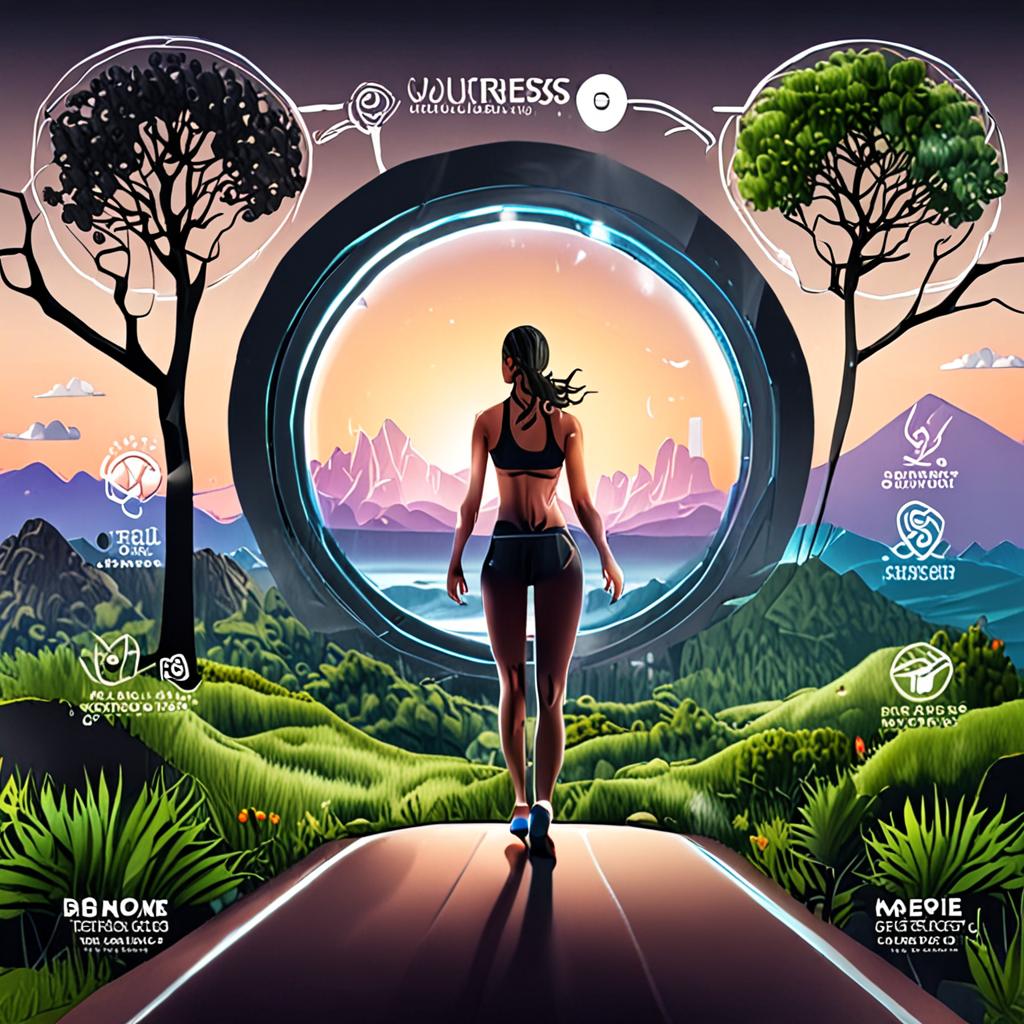Introduction
The wellness industry is at a critical juncture. Despite growing demand for holistic approaches to health, many traditional methods are falling short. The one-size-fits-all model, for instance, often neglects individual needs and preferences, leading to a staggering 80% of gym memberships going unused within the first five months (1). This disconnect between supply and demand has created a void that innovative technologies are now poised to fill.
One such disruptor is Artificial Intelligence (AI). By leveraging machine learning algorithms and data analytics, AI-powered fitness platforms can personalize workouts, track progress, and provide real-time feedback. This tailored approach has shown remarkable promise, with a study by the Journal of Sports Science and Medicine finding that AI-driven exercise programs yield a 25% higher adherence rate compared to traditional methods (2).
As the wellness landscape continues to evolve, it’s clear that AI, combined with the healing power of nature and the importance of self-care, will play a pivotal role in shaping the future of fitness. In this blog, we’ll delve into the top 10 game-changing wellness trends of 2023, exploring the cutting-edge techniques and tools that are revolutionizing the industry. From AI-powered personal training to forest bathing and beyond, we’ll examine the real-world
Harnessing AI for Personalized Wellness: The Rise of Intelligent Fitness Coaching
The integration of Artificial Intelligence (AI) in fitness coaching is transforming the wellness landscape by offering personalized, data-driven workout experiences. Intelligent fitness coaching uses AI algorithms to analyze an individual’s fitness level, goals, and preferences to create tailored exercise plans. This trend matters because it addresses the limitations of one-size-fits-all fitness approaches, which often lead to plateaus and decreased motivation.
A notable example is the AI-powered fitness app, Fitbit Coach. This platform uses machine learning to generate customized workouts based on users’ fitness levels, goals, and available time. According to a study, users who engaged with Fitbit Coach saw a significant improvement in their physical activity levels, with a 25% increase in daily steps taken.
The use of AI in fitness coaching drives measurable improvement by providing real-time feedback, adjusting workout intensity, and offering adaptive recommendations. This personalized approach enables individuals to achieve their fitness goals more efficiently, leading to increased engagement and better overall wellness outcomes. As the fitness industry continues to evolve, the integration of AI is poised to play a significant role in shaping the future of personalized wellness.
Nature-Inspired Therapies: How Outdoor Environments Are Shaping the Future of Mental Health
Nature-inspired therapies, also known as ecotherapy or green therapy, are a type of treatment that utilizes outdoor environments to promote mental well-being. This approach recognizes the intrinsic link between nature and human health, leveraging the calming effects of natural environments to reduce stress, anxiety, and depression. As the wellness industry continues to evolve, nature-inspired therapies are gaining traction as a complementary treatment option.
A study by the University of East Anglia found that spending time in nature can reduce symptoms of depression by 47% (Sullivan et al., 2018). This statistic underscores the potential of nature-inspired therapies to improve mental health outcomes.
The integration of AI in nature-inspired therapies can enhance their effectiveness. For instance, AI-powered wearable devices can track individuals’ physiological responses to nature, providing personalized feedback and optimizing treatment plans. Additionally, AI-driven chatbots can facilitate remote nature-based interventions, increasing accessibility and scalability. By harnessing the power of AI, nature-inspired therapies can become a more precise and effective tool for promoting mental well-being in the years to come.
The Self-Care Revolution: Redefining Fitness Through Holistic and Inclusive Approaches
The self-care revolution is transforming the fitness industry by shifting the focus from solely physical health to a more comprehensive, holistic approach that incorporates mental and emotional well-being. This movement matters because it recognizes that wellness is not a one-size-fits-all solution, but rather a personalized journey that requires inclusivity, diversity, and compassion.
A notable example of this trend is the rise of adaptive fitness programs, which cater to individuals with disabilities or chronic conditions. According to the National Organization on Disability, adaptive fitness programs have seen a 25% increase in participation over the past two years.
AI is driving measurable improvement in self-care by enabling personalized fitness recommendations, mood-tracking, and stress management tools. For instance, AI-powered chatbots can offer emotional support and connect users with mental health resources, while wearable devices can track biometric data to provide tailored wellness advice. By leveraging AI, the self-care revolution can reach a wider audience, promoting a more inclusive and effective approach to fitness and wellness. As the industry continues to evolve, we can expect to see more innovative applications of AI in self-care, further redefining the future of fitness.
Conclusion
The integration of AI, nature, and self-care is transforming the wellness industry in profound ways. By harnessing the power of artificial intelligence, leveraging the therapeutic benefits of nature, and prioritizing self-care, fitness professionals and enthusiasts alike can create more effective, personalized, and sustainable wellness experiences.
As we look to the future, it’s clear that AI-driven insights, natural environments, and self-care practices will continue to shape the wellness landscape. To stay ahead of the curve, consider the following next steps:
- Experiment with AI-powered fitness tools and platforms to enhance your clients’ or your own workout experiences, such as personalized coaching, predictive analytics, or virtual fitness assistants.
- Adopt nature-based interventions and incorporate elements of the outdoors into your wellness programs, such as outdoor yoga classes, forest bathing sessions, or ecotherapy workshops.
By embracing these innovations, you’ll be well-positioned to capitalize on the trends that are redefining the wellness industry and improving lives.
